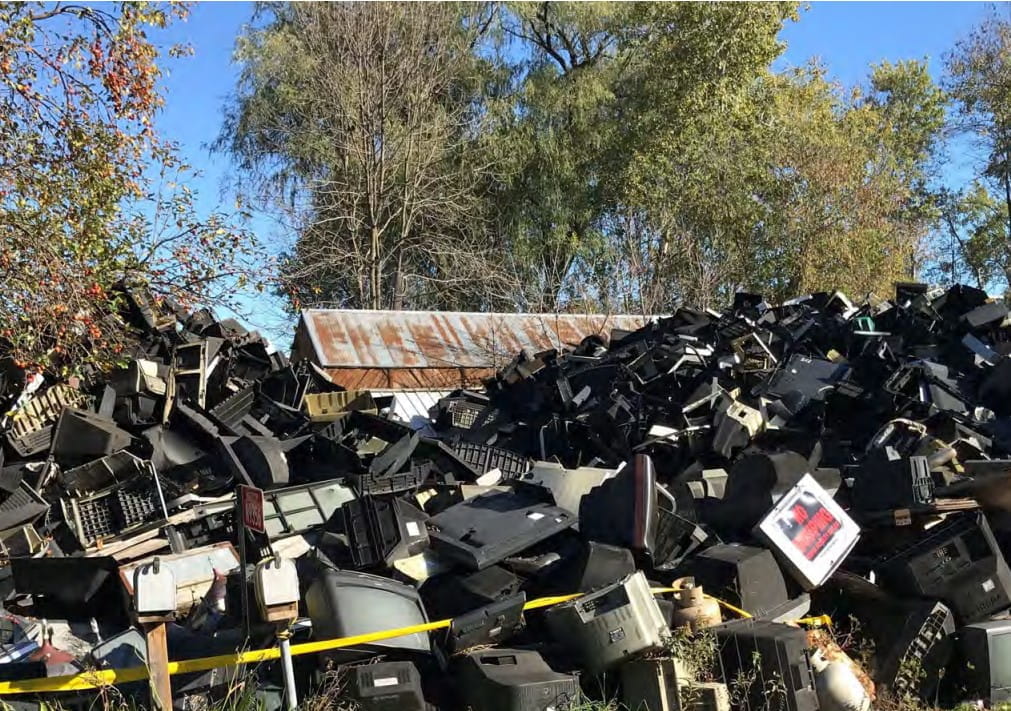Wanting to keep his income stream going, he tossed the stuff with no value in small piles. Television tubes and plastic TV carcasses started to pile up — piled up so high that the house could not be seen from the street. The glass TV tubes were piled among the trees around the house. The dump would take a few of the glass tubes but not as many as had been collected.
As more people heard about the easy way to get rid of stuff, the more dumping occurred. It extended several hundred feet on each side of the house along the road. It included stuff that had no value. It was simply people who were taking advantage of the situation. With this increasing eyesore came some neighbor complaints — first to the township and then to the county. The township could not do anything because they did not have a blight ordinance to enforce the cleanup. The county did not respond. The road commission told William he needed to stop.
William tried to slow things down, but people would just dump stuff on their own. As more and more material was collected, it extended out into the roadway. In the winter, the snowplows would knock some of the TVs that people would just dump back into the road ditch and the yard.
As the piles of TV parts, tires, refrigerators and other electronics continued to pile up, one of the neighbors realized that the local government was not going to do anything about this horrible eyesore. They called the local Department of Natural Resources (DNR) office to see what they could do about it. The office sent the Environmental Conservation Officer (ECO) assigned to the area to assess the situation.
The ECO referred the situation to the DNR’s sister organization — the Michigan Department of Environment, Great Lakes and Energy (EGLE). EGLE inspectors typically assist local officials with handling solid waste dumping complaints. However, given the extent of the problem and continued dumping, , EGLE solid waste inspectors issued cease and desist letters to William, encouraging him to stop taking in stuff and start a cleanup.
William did not have the financial resources to clean up the mess. EGLE did as much as they could and through state grants — things like the tires were removed from the property. Other EGLE staff worked to get the old electronics cleaned up but that would involve piling them into boxes and loading them into a semi-trailer. William was no longer a spring chicken so that was out of the question.
Then, one cold November night the unthinkable happened. The space heater in the little house that William and his wife called home caught their bedding on fire and the house and most of the piles of junk outside the home went up in flames. William’s wife got out of the house with the family cats, but William perished in the fire.
Now there was a real mess left at the property: half-burned TV tubes, broken TV tube glass, piles of whole and half melted electronics, piles of melted plastics and a variety of other material from the scraping business.
